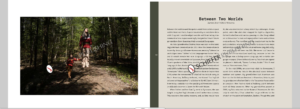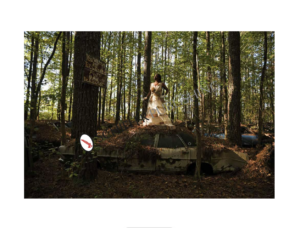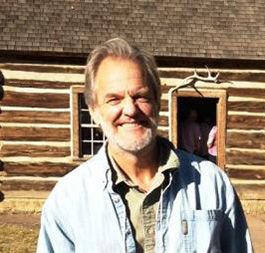Mark van de Logt: Between the Floods: A History of the Arikaras
June 11, 2025 by David
Filed under Non-Fiction, WritersCast
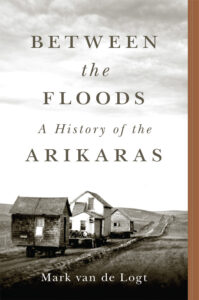 Between the Floods: A History of the Arikaras — Mark van de Logt — University of Oklahoma Press —Paperback — 9780806194905 — 384 pages — $29.95 – October 1, 2024 – ebook versions available at lower prices
Between the Floods: A History of the Arikaras — Mark van de Logt — University of Oklahoma Press —Paperback — 9780806194905 — 384 pages — $29.95 – October 1, 2024 – ebook versions available at lower prices
During the past couple of years, I’ve read several really good books that recast the history of indigenous Americans both prior to, during, and after the invasion of North America by Europeans, first by explorers, fishermen and traders, and later by colonizers. Almost everything most of us learn about this part of the history of the Americas has been told and taught from the European perspective. Academic studies have similarly been mostly conducted by white Americans with indigenous people seen as subjects for interrogation and study by what is proposed to be a more “accurate” form of science, rather than treating indigenous people as equals, with practical knowledge, historical awareness, and actors with full credibility in the telling of their own histories and practices.
Mark van de Logt’s excellent book Between the Floods, purposely challenges the way the history of an indigenous people is studied and understood. Mark gives credence from the outset to the oral storytelling of the Arikara people, that sets forth their history in an oral tradition, which he then supplements with other forms of knowledge to expand them.
The Sahnis, or Arikara, as they are best known, were at one time a powerful independent nation, who likely migrated from the southwest hundreds of years ago, and settled in the Missouri River region in what is now mostly Nebraska (though today, the tribal lands are the Fort Berthold Reservation in North Dakota.)
The Arikaras, like their Hidatsa and Mandan neighbors on the northern plains, were both farmers and hunter-gatherers who thrived as corn growers and successful buffalo hunters. The arrival of Europeans, even hundreds of miles away from them brought pressure on their villages from other indigenous nations, notably the Lakhotas, whose larger population and more successful military forces caused displacements and relocations, and contact with Euro-Americans brought devastating diseases and other problems for the Arikara as well. Their important location on the Missouri River brought them into contact early on with French fur traders, the Spanish, and especially Americans after Lewis and Clark, often with damaging effects on their tribe.
Between the Floods creates a historical narrative of a resilient semi-sedentary people in their migration and settlement as they confront the colonialist era, endure many tribal conflicts, experience terrible diseases, and incorporate horses and metal tools into their culture. Arikara oral traditions and histories provide an entry into their past and current culture that at its core has survived intact despite so much suffering at the hands of their enemies and the conquering American society.
Mark uses information from archaeology, linguistics, and anthropology to enhance native storytelling, and the book is illustrated with Native maps and ledger art, along with historical photographs and drawings. There is no better way to understand this important tribal nation that likely is known to very few Americans today.
This is a terrific book. It’s well written, well-researched, and demonstrates throughout a deep appreciation for the Sahni people, their lifeways, history and traditions. This kind of history-telling is really important not only for the tribe but to all of us who know so little about their past and present lives. And Mark deep knowledge and broad field of study makes him a terrific interview subject.
Mark van de Logt is Associate Professor of History at Texas A&M University of Qatar, teaches in the Department of Modern Languages and Cultures at Radboud University, and is also the author of War Party in Blue: Pawnee Scouts in the U.S. Army (2010) and Monsters of Contact: Historical Trauma in Caddoan Oral Traditions (2018). Between the Floods was awarded the Erminie Wheeler-Voegelin Prize for best book in Ethnohistory from the American Society for Ethnohistory. His current research involves linking oral traditions to historical events. His articles appeared in the “Journal of Military History,” the “American Indian Quarterly,” the “American Indian Culture and Research Journal,” and “Wicazo Sa Review.” He is (co-)editor of the University of Nebraska Press’s “Studies in the Anthropology of North American Indian” series.
There is an interesting interview with Mark about the Arikara scouts for “The Friends of Little Bighorn” here.
Podcast: Play in new window | Download
B.A. Van Sise: On the National Language: The Poetry of America’s Endangered Tongues
December 11, 2024 by David
Filed under Non-Fiction, WritersCast
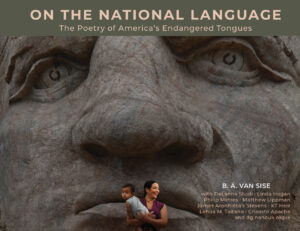 On the National Language: The Poetry of America’s Endangered Tongues – B.A. Van Side – 978-0-7643-6814-1 – Hardcover – 176 pages – September 28, 2024 – $50.00 – Schiffer Publishing
On the National Language: The Poetry of America’s Endangered Tongues – B.A. Van Side – 978-0-7643-6814-1 – Hardcover – 176 pages – September 28, 2024 – $50.00 – Schiffer Publishing
Podcast: Play in new window | Download
Enrique Salmón: Iwígara: American Indian Ethnobotanical Traditions and Science
January 9, 2022 by David
Filed under Non-Fiction, WritersCast
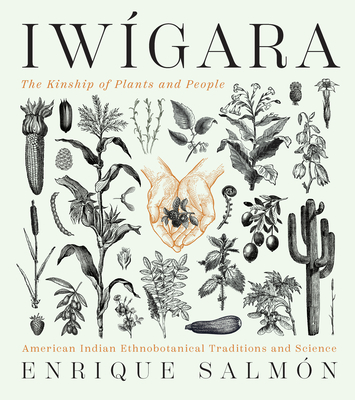 Iwígara: American Indian Ethnobotanical Traditions and Science, The Kinship of Plants and People — Enrique Salmón –Timber Press — 978-1-60469-880-0 — Hardcover – $34.95 – ebook and audio book versions available at lower prices
Iwígara: American Indian Ethnobotanical Traditions and Science, The Kinship of Plants and People — Enrique Salmón –Timber Press — 978-1-60469-880-0 — Hardcover – $34.95 – ebook and audio book versions available at lower prices
This is a truly incredible and hugely inspiring book for me. Enrique Salmón, a member of the Raramuri tribe from Mexico, has spent a lifetime learning and studying the medicinal and cultural properties of North American plants. He now teaches at California State University-East Bay in Hayward, California. His work may place him in academia, but he is fully engaged in the natural world.
Salmon begins his work with the deeply held knowledge that all life-forms are interconnected and share the same breath, which is called Iwígara in the Raramuri tribe.
In this book, Salmón presents us with eighty of the most important plants used by North American indigenous peoples. Of course, plants have always been used as food and medicine by indigenous peoples. What is important knowledge for those who are interested in engaging with a plant centric life are the passed down information about identification and harvest, the nature and applications of plants for food and medicine, and to understand how they have been central to traditional stories and myths for the disparate cultures across this continent.
Salmón honors the traditions and practices of so many different tribes here, and helps us understand the variation across different biomes and cultures of the people who live in them. Some of us learn deeply in a specific place across long periods of time, while others may trade breadth for depth. Native peoples are among the former, but most modern people fall into the latter category. A book like this one helps bridge the two different approaches to knowledge. Salmón recognizes that tension, and manages it well here. He understands that one cannot live in deep connection to the natural world without choosing a place in which to live. But readers need to know where to begin, and this book can be an introduction for anyone who wants to begin their own journey of learning and knowledge about plants, healing and cultural traditions.
I should mention also that the book is beautifully designed and includes many excellent photographs and illustrations, most in color. It is excellent work, combining narrative with references suited to beginners and experienced naturalists alike.
Enrique is also the author of Eating the Landscape: American Indian Stories of Food, Identity, and Resilience (2012).
I was honored to have the opportunity to speak with Enrique Salmón for Writerscast about his work, and hope you will enjoy listening to a truly knowledgeable plant practitioner.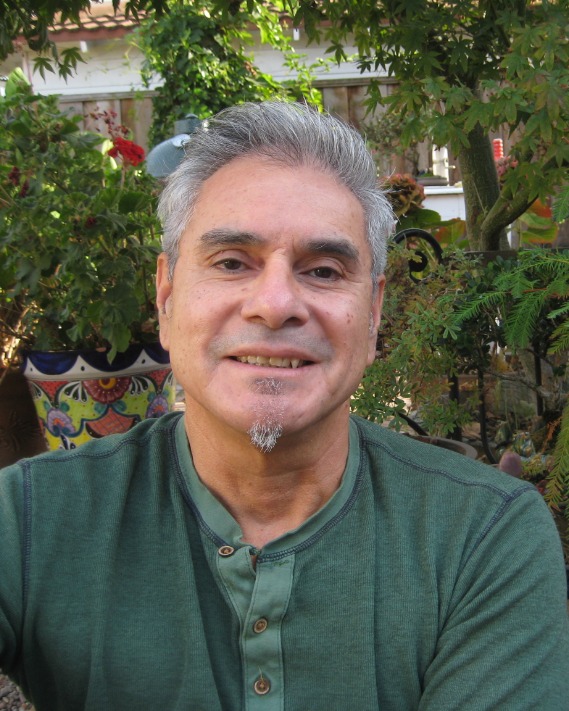
Purchase Iwígara from Bookshop.org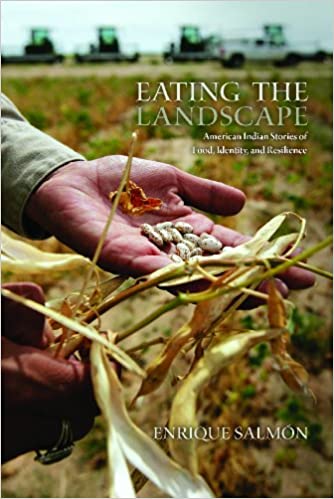
Podcast: Play in new window | Download
Surviving Genocide: Native Nations and the United States from the American Revolution to Bleeding Kansas: Jeffrey Ostler
January 12, 2021 by David
Filed under Non-Fiction, WritersCast
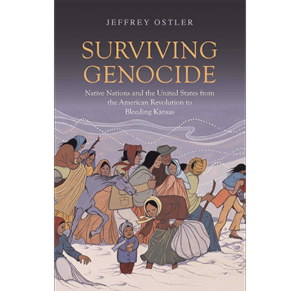 Surviving Genocide: Native Nations and the United States from the American Revolution to Bleeding Kansas – Jeffrey Ostler – 9780300255362 – Yale University Press – Paperback – 544 pages – September 22, 2020 – $25 – ebook versions available at lower prices
Surviving Genocide: Native Nations and the United States from the American Revolution to Bleeding Kansas – Jeffrey Ostler – 9780300255362 – Yale University Press – Paperback – 544 pages – September 22, 2020 – $25 – ebook versions available at lower prices
“A landmark book essential to understanding American history, Surviving Genocide is an act of courage. Ostler’s brilliant concept of reconstructing ‘an Indigenous consciousness of genocide’ is significant for its insight into how American Indians understood, discussed, and resisted genocidal threats to their families, communities, and nations. His modern vocabulary of ‘atrocities’ and ‘killing fields’ is not for political effect but appropriate to the brutal reality of Indian policy in American history.”—Brenda Child, Northrop Professor of American Studies, University of Minnesota
Even though many of us feel we are familiar with the story of the “settling” of America by Europeans and the dispossession of indigenous people, reading Jeffrey Ostler’s book, part one of a major two-volume history, will educate every single one of us to a better understanding of the full scope of the takeover of a continent by invading Europeans. Conquest and genocide are terms we seem unable to apply to our own history, preferring still a more sanitized version of the centuries long overwhelming of the people who lived here before Europeans arrived in force.
Ostler has spent years of research documenting the governmentally sanctioned use of force to remove or kill the indigenous people who were inconveniently in the way of the relentless expansion of the American republic. In this book he documents the losses from the violence – massacres, destruction of habitat and lifeways, diseases and cultural upheaval suffered sequentially by native peoples for hundreds of years as first colonial settlers and then Americans flooded the continent. This volume covers the story of the eastern United States from the 1750s to the beginning of the Civil War that set the stage for the post-Civil War expansion that is perhaps the better known narrative – buffalo, horses, trains, Crazy Horse and the Lakota being so much a part of popular culture imagery. As Ostler shows, the way this played out was not “inevitable” and Manifest Destiny was neither. The indigenous people were outnumbered, but often not out maneuvered or outwitted, and their ability to survive the nightmares of dispossession and attempted genocide is heroic.
As Americans, it is sometimes difficult to look at our own history with honesty. It is often said that the “original sin” of America is slavery, but I think we must grapple with the actuality that there are two essentially economic-based social and cultural wounds at the heart of the American project. First, there is the forced dispossession of the people who were on the land itself, and second, the forced migration and enslavement of Africans for the benefit of white Americans and their economic development. We must learn as much as we can about the history of the last five hundred years in North America in an unromanticized, clear-eyed effort to fully comprehend what our forebears did in the course of creating the American dream all of us are allowed thereby to enjoy. The truth in all its complexity should serve as counterweight to the false narratives and self-serving images we choose to live by, all created as a form of ongoing social control.
Indigenous people have survived despite the many attempts to extirpate them or to forcibly transform and bend their cultures into the conquerors’ image of what “civilization” looks like. Still, the traumatic effects of conquest need to be recognized, acknowledged and repaired and it would be no small thing to recognize formally that a genocide was in play, with all the social and political results that term carries with it. This book and presumably the subsequent volume in Ostler’s work, should help us move in that direction.
The book is well written, hard to put down and completely engrossing; its authoritative and well-researched approach makes it a powerful document and well worth your time to read.
I’m grateful for Jeffrey Ostler for taking the time to talk to me about this book and for Yale University Press for alerting me to it.
Jeffrey Ostler is Beekman Professor of Northwest and Pacific History at the University of Oregon and the author of The Lakotas and the Black Hills and The Plains Sioux and U.S. Colonialism from Lewis and Clark to Wounded Knee.
Podcast: Play in new window | Download
Crooked Hallelujah: Kelli Jo Ford
July 20, 2020 by David
Filed under Fiction, WritersCast
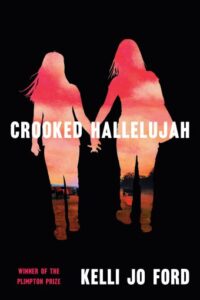 Crooked Hallelujah – Kelli Jo Ford – 978-0-8021-4912-1 – Grove Press – Hardcover – 304 pages – July 14, 2020 – $26.00 – ebook versions available at lower prices.
Crooked Hallelujah – Kelli Jo Ford – 978-0-8021-4912-1 – Grove Press – Hardcover – 304 pages – July 14, 2020 – $26.00 – ebook versions available at lower prices.
Kelli Jo Ford’s novel is a deeply rewarding read. Comparisons to the work of Louise Erdrich are inevitable and unavoidable (and Kelli Jo mentioned Louise in our conversation as one of her most important influences.) This is a novel of relationships and family told through the voices of four generations of Cherokee women and to a lesser extent, the men who come in and out of their lives. The narrative weaves together strands of familial cloth into what emerges as a beautiful and compelling pattern that we experience fully as the story is told.
At the outset of the book, we are in 1974 in the Cherokee Nation, eastern Oklahoma, where fifteen-year-old Justine is growing up in a family dominated by women – her mother, Lula, and her mother’s mother, Granny. We follow Justine, and her daughter, Reney, through a series of challenges in Oklahoma and Texas and back to Oklahoma, where family and roots call out to her.
Kelli Jo Ford is a fine writer, and manages her characters and their stories well. Her intergenerational story is complicated, and the multiple narrative voices take some concentration to follow, but her writing is warm and deft, and we are rewarded in the end by the beauty and depth of her characters and their lives. This family of strong Cherokee women continually face challenges with strength and wisdom. They make the necessary sacrifices for the people in their lives and go on living despite all the difficulties they face. They don’t always get along – these women are real people, not caricatures. They do not always succeed in understanding each other or overcoming the difficulties and challenges they face. There are conflicts over religion and individuality. But these women are bound by blood, heart, and a deeply felt love that carries them forward despite all. I came away from this book with an appreciation for the strength and perceptiveness of Cherokee women.
Kelli Jo Ford is a citizen of the Cherokee Nation of Oklahoma. She is the recipient of numerous awards, a National Artist Fellowship by the Native Arts & Cultures Foundation, and a Dobie Paisano Fellowship. Her fiction has appeared in the Paris Review, Virginia Quarterly Review, Missouri Review, and the anthology Forty Stories: New Writing published by Harper in 2012. She now lives in Virginia with her husband, poet Scott Weaver.
My conversation with Kelli Jo was her first interview about Crooked Hallelujah. She is a new writer many of us will want to follow in the years to come.
Author website here.
Support local business. Buy the book from R.J. Julia Booksellers.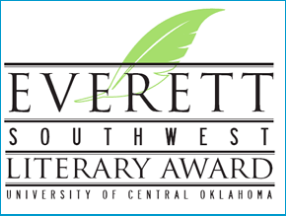
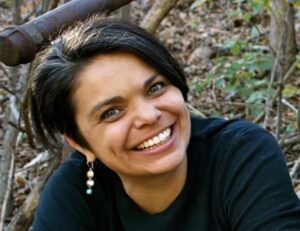
Podcast: Play in new window | Download


